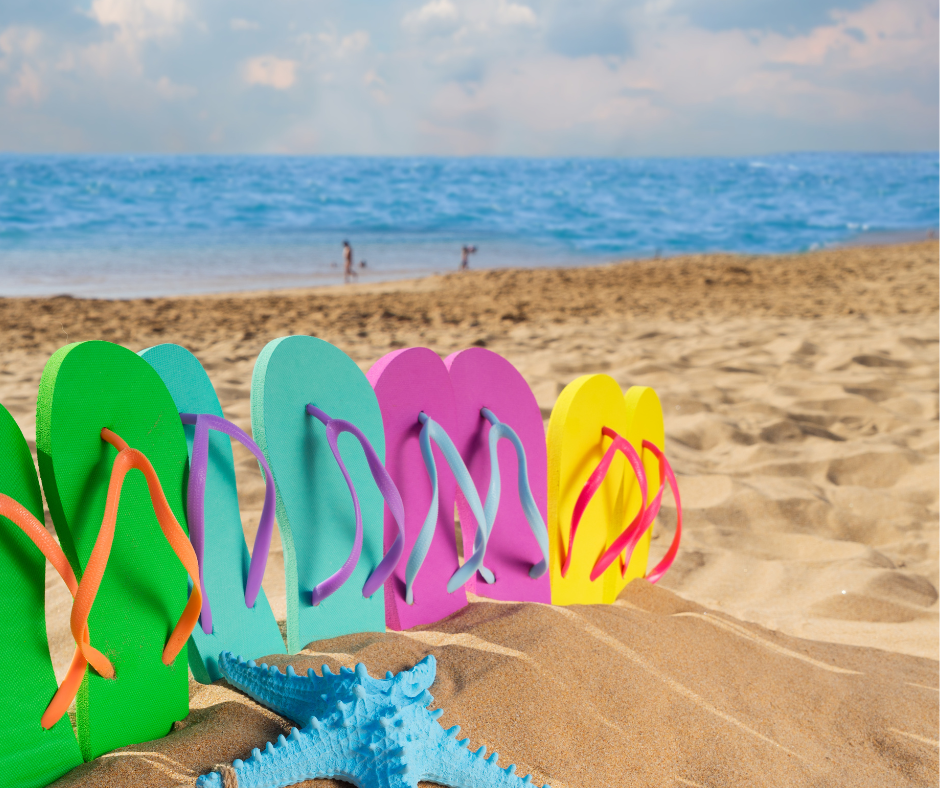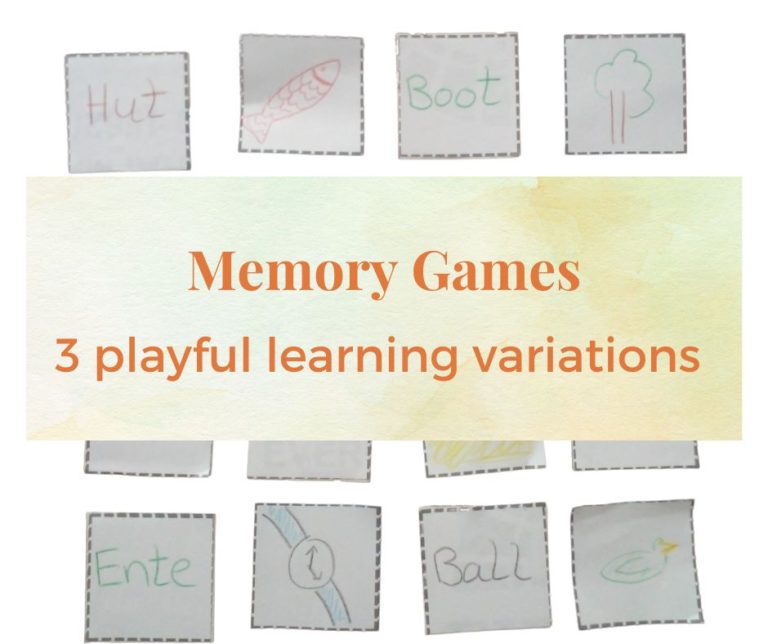
Did you play memory games as a child? You probably know memory games, where you need to match for example pairs of animals. But memory cards are also a great playful language learning game for monolingual and multilingual children.
And the best, you can easily create them yourself.
What you need:
– Cardboard
– White paper
– Scissors, Glue
– Color pencils
You can download a template for creating your cards here.
Here are three variations how you can use your memory cards with your child.
1. Matching cards
A good way to start on your child´s learning journey is to play a matching game.
Depending on the age of your child, you can match:
- different sizes of the same picture
- a picture and the beginning sound, or
- a picture and a word.
Show your child, how to display all the pictures one under the other. Then take one letter card and pronounce the letter sound (or word) and match it to the corresponding picture. Proceed until all cards are matched. Put all cards back into the basket.
Then invite your child to try it out. Do not intervene and observe how your child is doing it. 😊
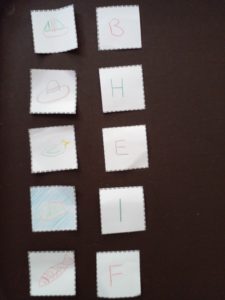
2. Memory Game
This variation is similar to the traditional way of playing memory games.
Mix all the cards and turn them upside down. Generally, it is easier for children, if the cards are displayed in regular lines.
Start playing the game with the first player, who opens two of the cards. Name the picture and the letter or word. If they match, the player can keep them. If not, he turns them upside down again. The next player opens two cards. Continue until all pairs are found.
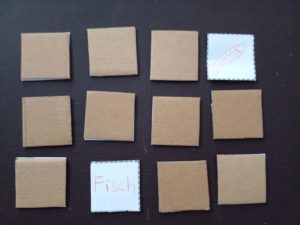
3. Card Scavenger Hunt
Another variation is to hide the pairs around the room (or the house
There are two ways to play this:
You can either give your child all the letter/ word cards and ask him to find the matching pictures.
Or you hide all cards and your child has to find a first card and then look for the matching card, before continuing with a second pair. In the end your child can display all the pairs he found.
The second variation is slightly more challenging, and great for older kids, or children who love extensive treasure hunts.
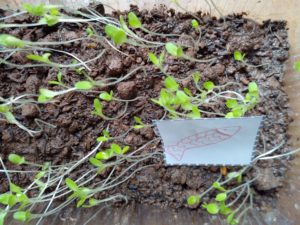
Would you like to build your own memory game?
Join the Multilingual Learner Parent Workshop, where we will jointly craft your very own language game.
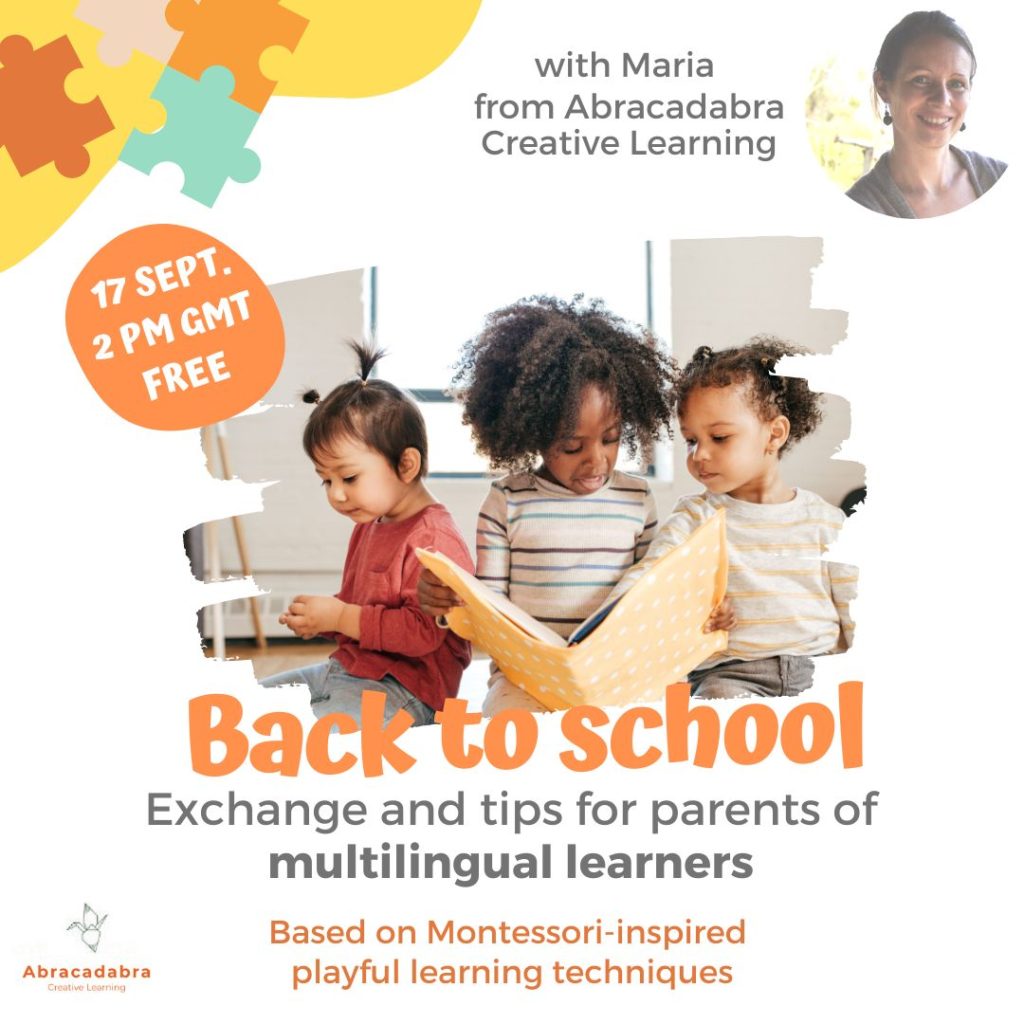
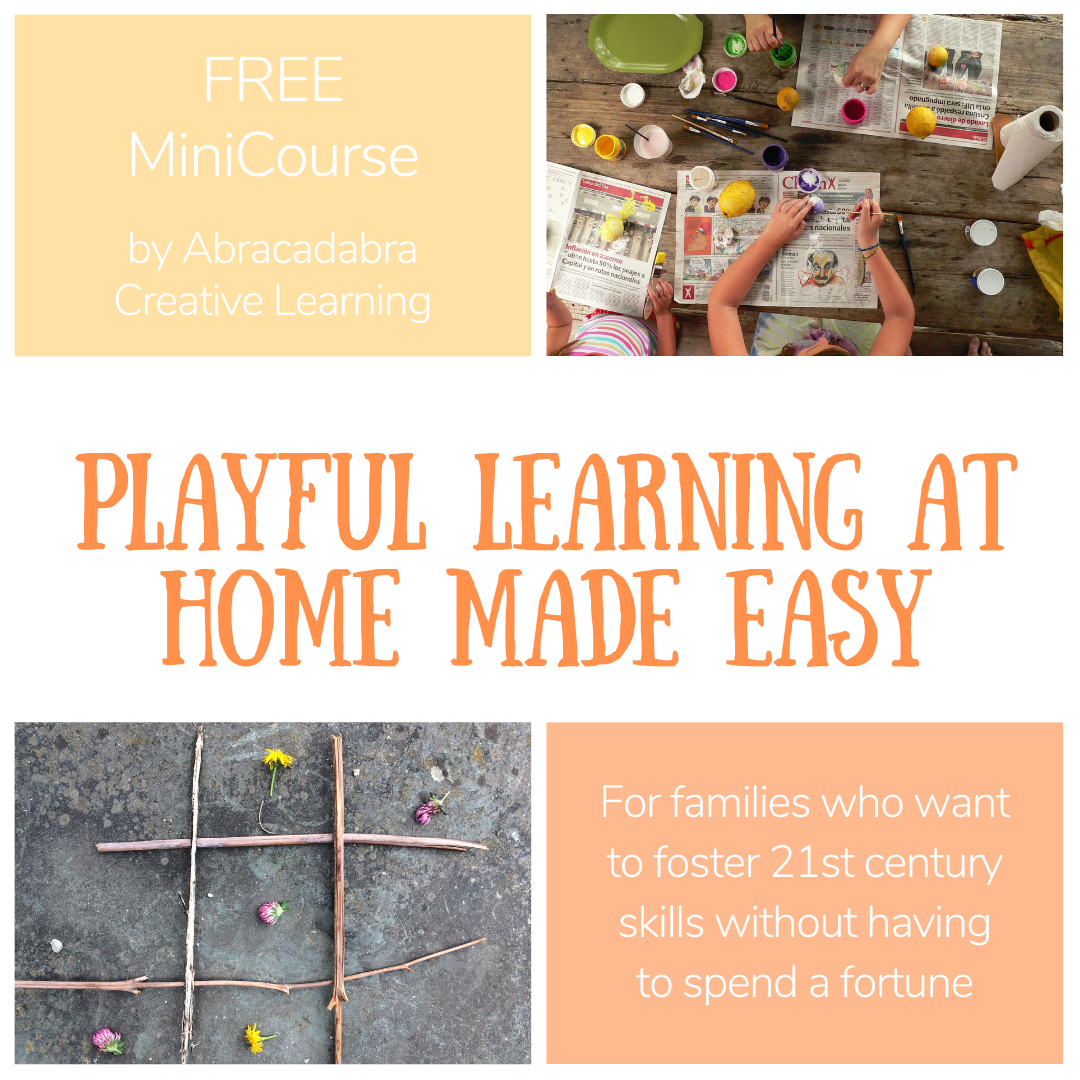
How to get started with Playful Learning
In this FREE 3-Day Video-Course I am showing you the first steps you can take to stimulate and engage your child in playful learning activities at home without tantrums and without any materials you have to buy.

Hi, Nice to meet you
Learning and growing up with multiple languages does not have to be hard work. I am Maria, a mother of 3 kids, an development and education expert and Montessori homeschooler. Having lived as a family over ten years in Africa and Asia I know exactly how challenging it can be to get access to high quality educational activities. With my step-by-step playful learning method, I am showing you how to raise little happy multilingual learners with limited time and only using local materials.
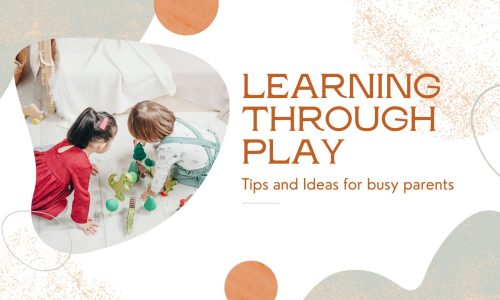
Are you already part of our parent community?
Join us now and get weekly ideas and tips for FREE and exchange with parents from all over the world.

Do you feel stuck on the language front and would like to find a language learning strategy that works for your family?
Feel free to reach out for a free orientation call with me where we will figure out concrete playful learning strategies for your child.
Book a 30min Orientation Call – it is completely free.

